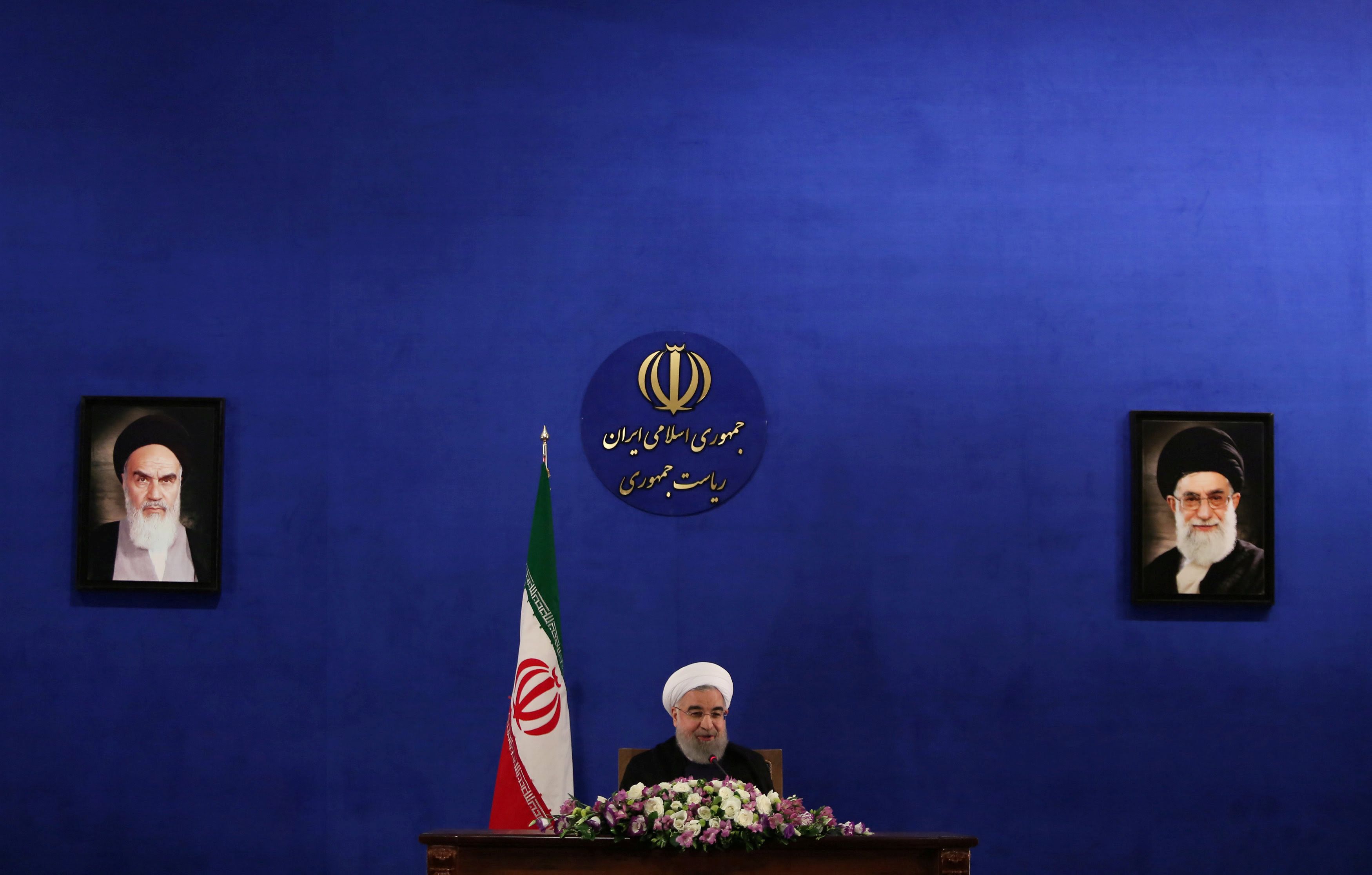Donald Trump arrived in office vowing to put new pressure on Iran. He has done just that.
Three months ago, Trump walked away from the Iran nuclear deal and then reimposed a number of sanctions. The damage was immediate. Iran’s economy is now expected to grow by just 1.8 percent this year before contracting by 4.3 percent next year, according to BMI Research. None of the other governments that signed the deal agree with Trump’s unilateral decision to withdraw, but European companies, in particular, continue to struggle to find banks, shippers, and insurers willing to risk confrontation with the US government.
Trump has made his point, but critics have long warned that walking away from the nuclear deal and sinking Iran’s economy would undermine those in Iran’s government who want better relations with the US and empower the country’s hardliners, the very people Trump says he wants to punish.
This is now happening:
Political pragmatist Hassan Rouhani was elected president on promises to boost Iran’s economy. The 2015 nuclear deal and Iran’s escape from sanctions in 2016 had been his signature achievement. On Sunday, parliament impeached his Economy and Finance Minister. On Tuesday, in response to a falling currency and fast-rising inflation, Iran’s parliament voted to formally reject Rouhani’s leadership of Iran’s economy following a public humiliation on live television.Rouhani is safe for now; his party’s strength in parliament makes impeachment unlikely. But that doesn’t mean his hardline rivals won’t make trouble for him in other ways.
The empowerment of hardliners will make Iran more unpredictable. On Wednesday, Supreme Leader Ali Khamenei warned that Iran might soon renounce the deal that European leaders hoped to continue without the US. That would allow Iran to restart its nuclear program.
Iran has again threatened to disrupt shipping through the Strait of Hormuz and Bab al-Mandab, two of the world’s busiest shipping routes. It will make mischief via proxies in Yemen, Iraq, Lebanon, and Syria. And Iran has built a formidable cyberwar capability that can inflict real damage on public infrastructure and private companies.
Despite economic hardship and the protests it’s generated, regime change in Iran remains highly unlikely. The Revolutionary Guard Corps’ troops and other security forces number close to 200,000, and Khamenei has shown himself willing to authorize violence to quell dissent.
The bottom line: Destruction of the nuclear deal and pressure on Iran’s economy have strengthened Iran’s hardliners. That makes it even less likely Iran will compromise or surrender—and all but certain that it will lash out.
